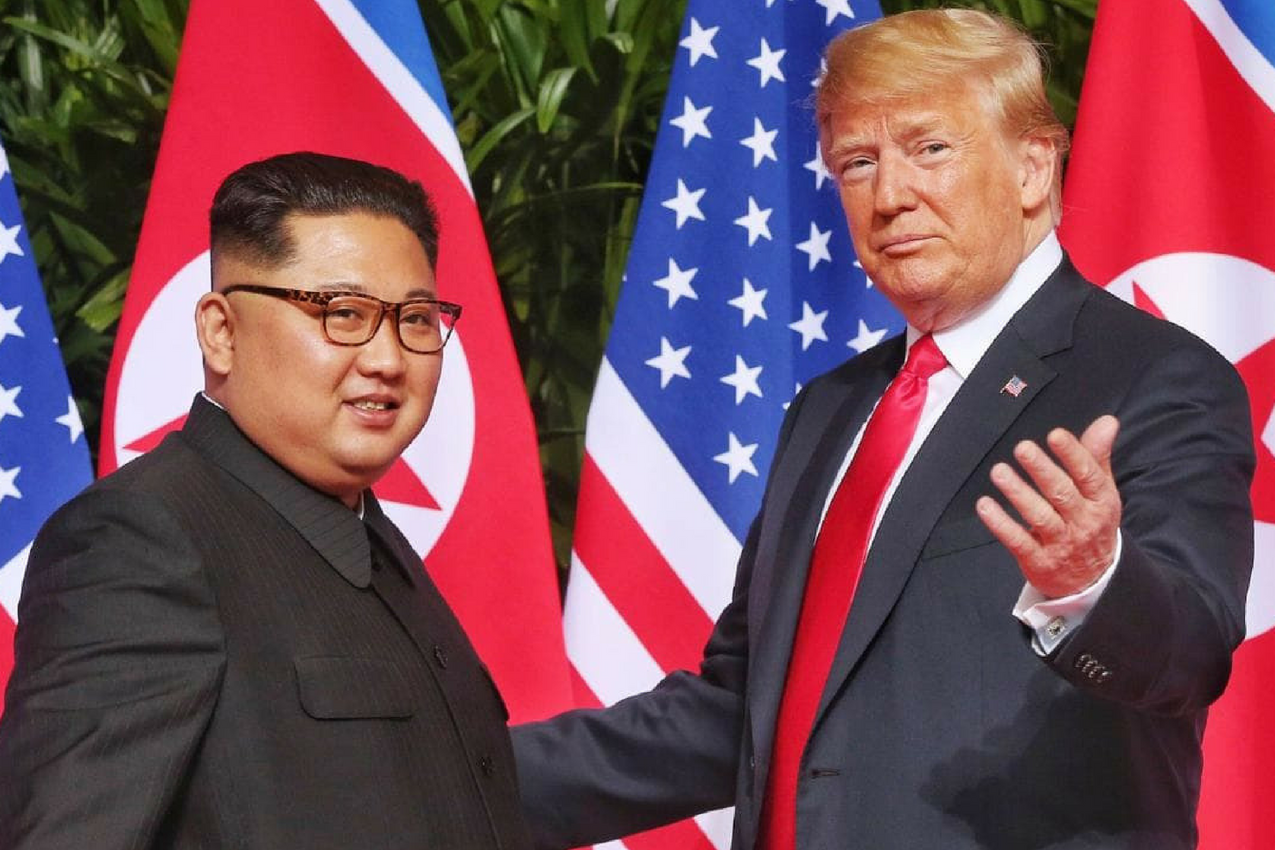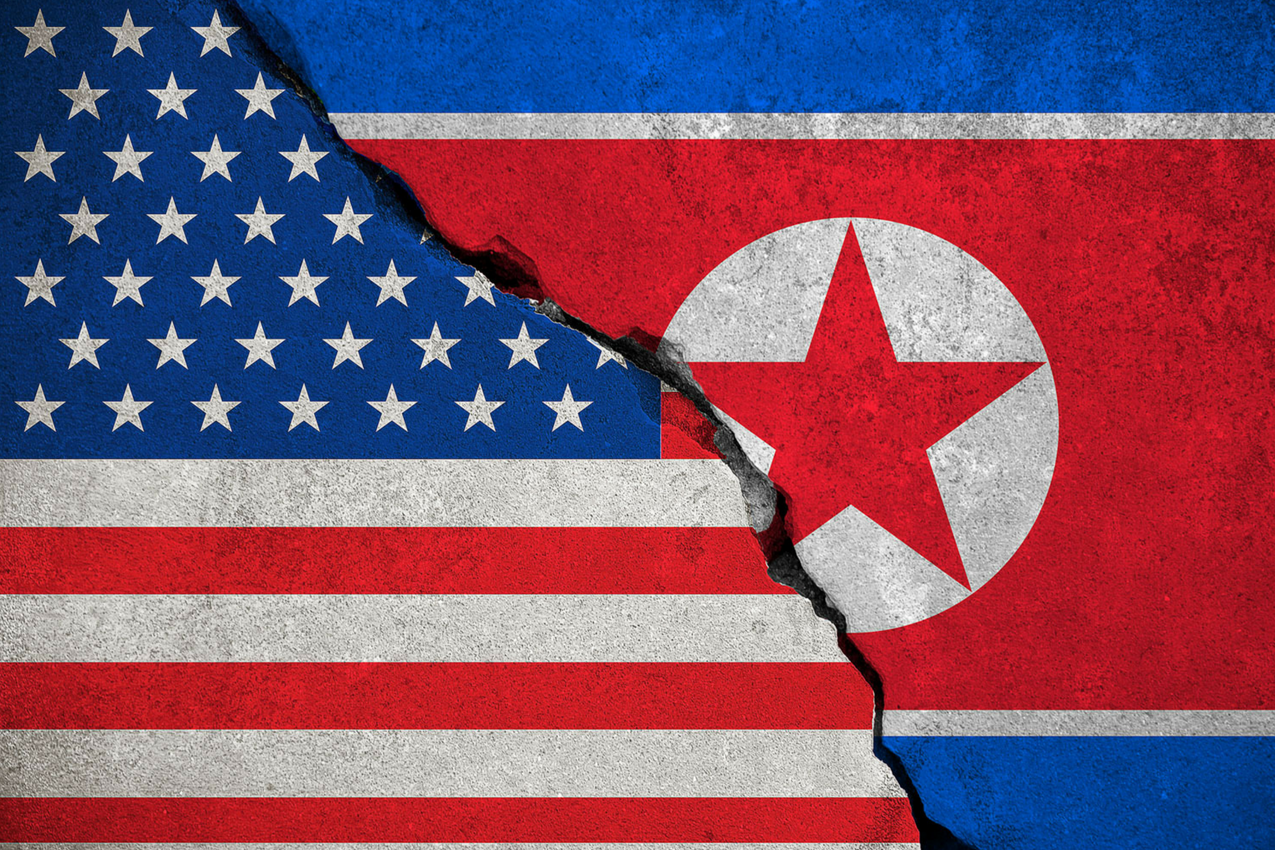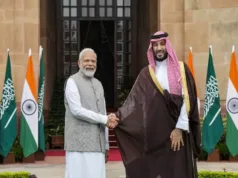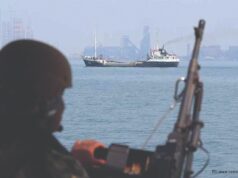This article was published in the monthly edition for June 2018.
Author- Ms. Gayathri Iyer.
*Trade sanctions are a subcategory of economic sanctions, which are commercial and financial penalties imposed by one or more countries, and targeted against a country, organization, group or individual.
Chinese Customs data for March 2018 shows that the unilateral sanctions by the U.S. on North Korea have, at the most, made a bearable impact on the latter’s economy. While the US can argue that the current stability in food prices and exchange rates in North Korea could indicate a delayed economic effect, an examination of the effects of U.S. sanctions in Myanmar, India, Cuba, Iran, or even Syria have shown that whenever the sanctions’ policy tools have not involved diplomatic engagements in parallel, sanctions have only undermined the competitive position of U.S. companies in targeted nations. Sanctions are being increasingly perceived as an official, unilateral American expression of displeasure. In most cases, they have neither brought about any change in the targeted countries’ behavior nor seem to have gotten international backing.
The implemented sanctions have also retarded the creation of a favorable balance of power in the targeted region. It is therefore, incumbent on South Korea to take a lead in directing international interventions in the Korean Peninsula through a combination of foreign policy tools that may or may not include sanctions.
U.S.A’s Failed Policy of Sanctions
Most countries do suffer economically from international sanctions in terms of additional trade costs and the loss of large export markets. Sanctions have, however, proven to be less of a problem than the internal challenges a country faces, like corruption, political instability, lack of an impartial judiciary, infrastructure lacuna, etc. More often than not, sanctions implied by the U.S. have shown counterproductive results for the country.
When U.S.A implied sanctions on Myanmar, it managed to alienate its Asian allies while strengthening the hand of China in the country. The U.S. sanctions on India in 1998 turned into a symbolic display of anger, and eventually the Bush administration had to withdraw the sanctions in 2001, stating that “the end of sanctions will itself produce a closer dialogue and, for example, possibly lead India to tighten its controls on the manufacture of material for nuclear weapons”.
Professor Steve H. Hanke of the Johns Hopkins University notes that Cuba and Zimbabwe managed to survive the U.S.A’s sanctions for over 50 and 30 years respectively– Cuba without and Zimbabwe with severe hyperinflation. Similarly, although sanctions from the U.S. on Iran led to hyperinflation and economic devastation, Iran did not abandon its nuclear program before it developed its weapons. “Regardless of the rhetoric coming out of Washington and Brussels, the U.S. and E.U. quietly began to lay the groundwork for a diplomatic solution in Iran”. Even though Trump has unilaterally walked out of a diplomatic engagement in May of 2018, the European Union remains committed to the same.
Obama administration’s failure in Syria has been blamed on America’s wrong reading of the Arab Spring. While America was convinced that it was all about the desire for democracy, the Syrian uprisings were more about wanting to get rid of the oppressive and corrupt dictators in the region. The Islamists used the chaos to propagate caliphate or Sharia law. Syrian civil war took no note of the U.S.A’s sanctions. There was no early attempt by the US to find a common and sustainable solution through diplomacy with the local regional powers. Success however, came to Obama when he negotiated with Russia and Syria to get chemical weapons out of the battlefield instead of air-bombing Assad’s rogue regime or letting the radical militias get control of the chemical weapons.
Failure of Sanctions in Bringing North Korea to the Negotiating Table
Experts say that the effectiveness of the sanctions on North Korea is a combination of “failure of some countries to enforce them and the willingness of some companies to flout them”.
A 2017 report by Washington’s nuclear non-proliferation think tank, Institute for Science and International Security shows that over 49 countries have violated the sanctions imposed by U.S.A and the UN Security Council on North Korea between 2014 and 2017.
Russia’s open opposition to sanctions may be because the country has a different perspective from the United States on what constitutes an effective sanctions policy. Russia wants to use sanctions only as punitive measures against specific violations of international law. China fears that sanctions could trigger implosion of North Korea and bring war to its doorstep. India has continued trading food and medicines with North Korea after making it clear to the U.S. that it will not snap diplomatic ties but only minimize its trade relations. Germany continues importing ferroalloys and other equipment from North Korea in exchange for its export of packaged medications to the country. Violations in Africa are largely attributed to lax enforcement. Only 11 of Africa’s 54 countries report on monitoring UN sanctions on North Korea.
Bruce Klingner of Heritage Foundation observes that the whole strategy of trade sanctions through maritime embargoes is reactive and flawed. The nature of the shipping industry is such that ships can indirectly violate sanctions as they do with chains of charters and sub-charters which might be subject to different or no sanction regimes at all. Unless enforcements are stronger and plugging is done at the end of financial backers and banks, embargoes may not be able to rein in
Kim Jong-un.
The small size of North Korea’s nuclear arsenal and the lack of sophistication in its early warning and command and control systems insinuate that North Korea’s possession of nuclear capabilities may pose a threat for its neighbors until North Korea reacts to the repeated threats of more sanctions or a disarming strike against its weapon systems. “Kim Jong may get into a use or lose situation and adopt an offensive nuclear doctrine that calls for the use of nuclear weapons early in a conflict”.
However, collective economic sanctions are starting to negatively impact the North Korean economy. Therefore, sanctions might be one of the reasons, if not the only reason, that brings Kim Jong-un to the negotiating table.
Meanwhile, even though the Trump administration had emphasized till as late as March 2018 that diplomacy was not a parallel step but could only be the next step after North Korea committed to full denuclearization, “The Pence formulation now implicitly acknowledges the reality that denuclearization is not a pre-condition to, but a result of diplomacy”.
South Korean Outreach through Economic Engagement Pragmatic
South Korea has -reasserted itself as an important regional balancer of powers in the Korean Peninsula. Its deft diplomacy under President Moon Jae-in has significantly reduced the chance of a nuclear conflict. He has very ably used the 2018 Olympics truce between the two Koreas to launch a new bilateral outreach strategy that hinges around economic engagement.
At the same time, Moon has drawn lessons from the failure of the country’s erstwhile Sunshine Policy (2003-2008). He refrained from offering North Korea any concessions prior to the inter-Korean summit and has also kept the economic aid to a minimum. While he talks to the conservatives about the pitfalls of an alliance with the U.S. at the expense of improving inter-Korean relations, he remains aware that the inter-Korean summit in April 2018 made only vague references to ‘denuclearization’ without discussing how it could really happen.
It is not clear how Moon will deal with China if the latter starts parenting North Korea. On Kim Jong-un’s most recent visit to China, Kim and Xi Ping outlined a far more drawn-out process for denuclearization than is favored by either the United States or its ally Japan. Ruediger Frank, an expert on the Koreas, recommends negotiations with fragile North Korea should take place without threatening it, without dictating the pace of its reforms, and without denuding it from its full sovereignty.
Moon Jae is cautiously calibrating his relations with the U.S. He is maintaining that sanctions shall remain part of his toolkit in dealing with North Korea in the foreseeable future. He could take note of the Brookings recommendation: “Sanctions should not be used to hold major or complex bilateral relationships hostage to a single issue or set of concerns. The alternative to broad sanctions is either to adopt narrow sanctions that are germane to the issue at hand or to turn to other policy tools”.
Author Bio- She is a Research Assistant with the Observer Research Foundation.










